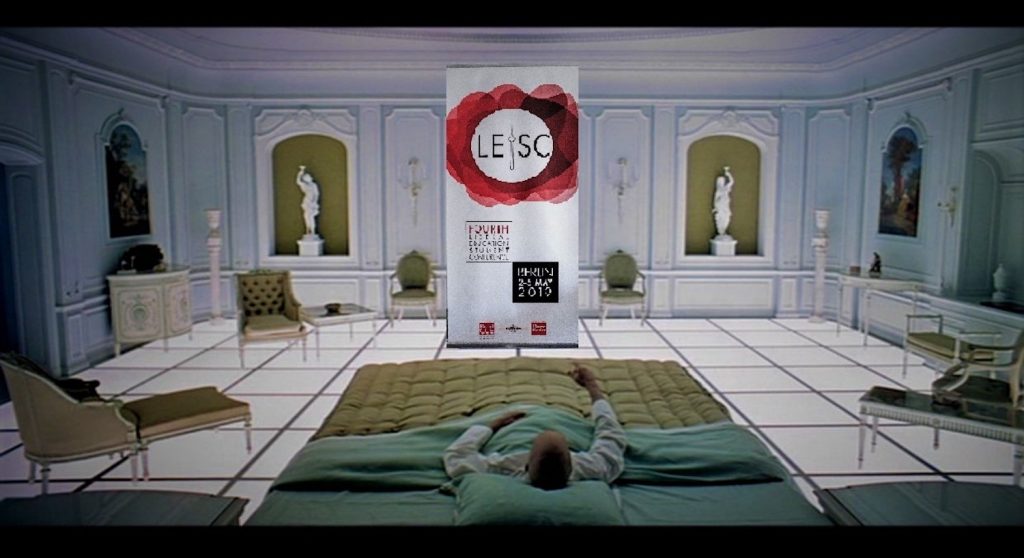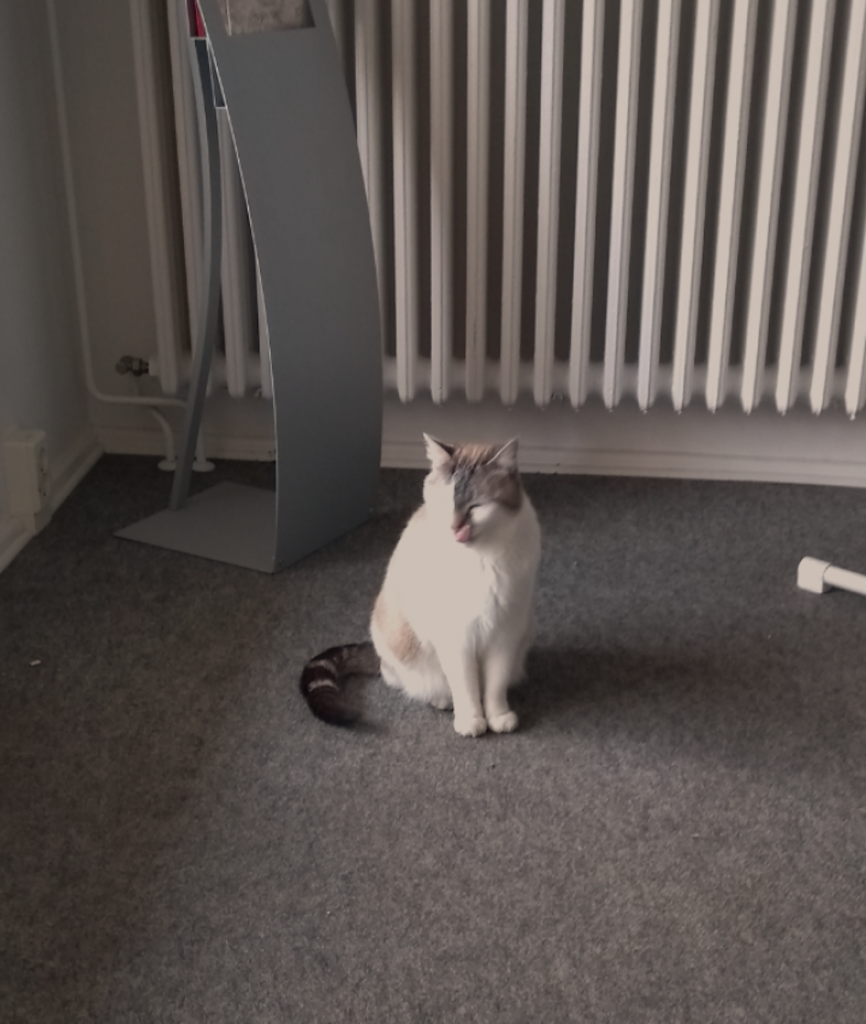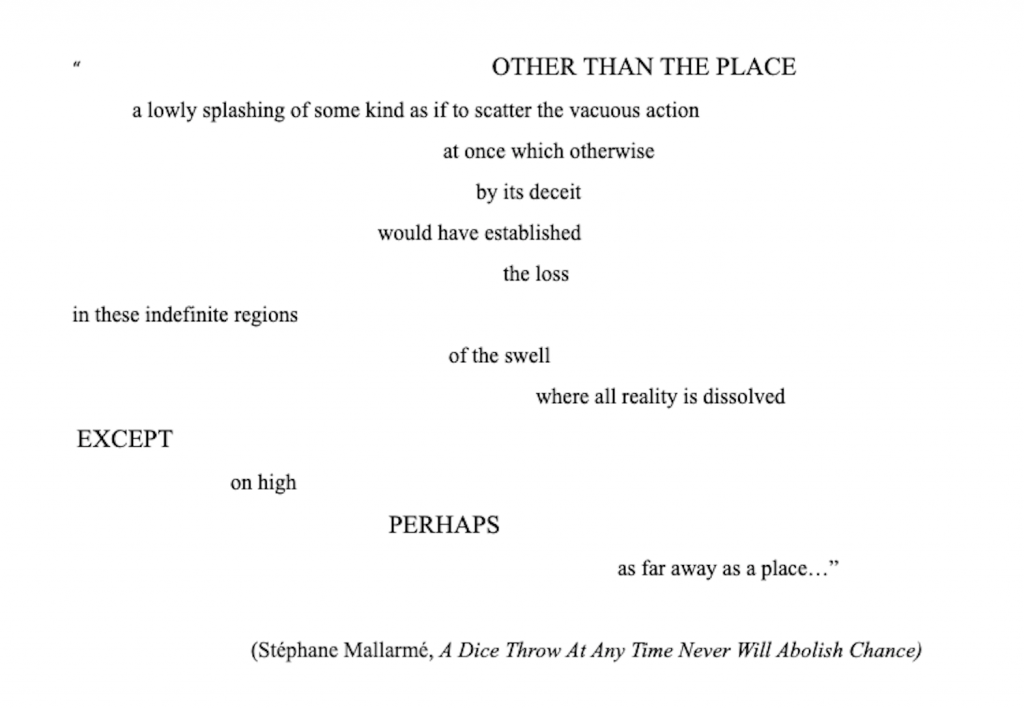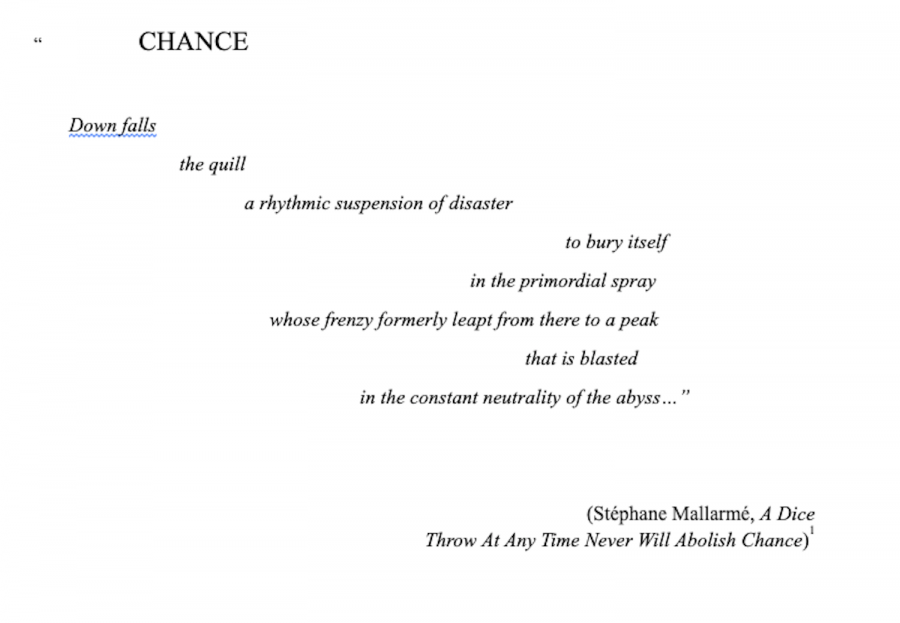Aporia – a term that can be found floating around in the deep recess of those delicate middle months of the Republic core, when, just coming in, you and I are as strange to the endeavour – the ambition – of Liberal Arts as we are to the language of the first core text. No one knows what we are getting ourselves into when we choose a Liberal Education – whatever that means – much less a small Liberal Arts College in the forgotten fringes of Pankow over universities that advertise a ‘safe and secure’ breakfast option complete with your morning dose of ensured ‘future contribution.’ Do we know yet? Two years and an almost-inarticulably sublime Liberal Education Student Conference later, I am still not sure I have the answer; but I know that’s the way it should be. The theme of this piece is aporia – an impasse. An impasse that is not so much perplexity at being confronted with challenges to one’s presuppositions as much as it is a violent, paradoxical non-event, where one must leave behind all one comes in with in order not only to gain access to the teeming abyss of the metaphorical ocean, but also, on a more learned vein, to begin anew.
I. Impasses; or, The Year That Was
Without going into an Aristotelian inquiry of the problem of what it is for something to be Liberal Arts, let us borrow his wisdom to think first about impasses and the kind of state that one is in at this moment that makes them an effective learning tool. In the Metaphysics, in introducing the things which one must think through impasses before delving into the impasses themselves, Aristotle states that “these are all those things about these topics that some people have conceived in different ways, as well as something apart from these that they might happen to have overlooked. And it is profitable for those who want to get through something well to do a good job of going over the impasses” (Bk III, Ch I, 995a).
Why?
Because impasses help one not only confront the current state of knowledge about the things one seeks to investigate, but the fact that these pre-established principles bring one to a point where passage is no longer possible [*1] compels one to logically think through the suppositions for themselves, in preparation for a way forward.
And thus, our own endeavour – a small, motley crew of BCB students with little to our names but enthusiasm and sometimes-precarious ideas – to organise the next Liberal Education Student Conference can also be understood through a series of four impasses, which went as follows.

Impasse 1: “…whether the elements have being potentially, or in some other way,”
It was peak lunch hour one Friday last Fall, and I still do not know how I found myself at the cafeteria, trying to spot who would go on to become the six other people seeing the conference to its final cause. There was a good amount of scepticism on my part on whether the conference would actually come into being at the end of the academic year, and looking at it through the lens of a tightly scheduled semester, I was unsure about just how much energy to put into something that might never come to be. But something about the conference’s potentiality for being was enough to lure me in, like a Siren’s song, and there I was that Friday afternoon in the radioactive zone that is the Cafeteria at lunch with what ended up being only Marga Hattingh and I out of the seven people, wondering what we could set down as the focus of the conference.
Ideas were flowing, and I am not sure how much of our excitement was from that aforementioned potentiality for being and how much was actually for the ideas themselves, but somewhere around 13:30 – when the crowd slowly started trickling out onto the streets – we struck gold: the conference should be something that explored Liberal Education not only as a question of what it could or could not do for the society, but on a wider scale, also addressed the interconnectedness of issues arising in society, the political economy, in light of technological advancement, and, as a consequence, the crises of education today. The conference was going to take place in the interest of the future.We thought we had it then, the conference theme being the sight of land after a long odyssey out on the sea.
However, moving forward wasn’t as smooth as hoped; not only had we not been out at sea long enough to feel like Odysseus, but we’d only just set foot on a boat we hoped to learn to navigate on the course. Our journey was only beginning. Before we put down the theme of the future to be the interest of the conference, we first had to address the challenge of assembling seven people with radically different schedules on a regular basis, and, once resolved, to democratically vote on whether the assembly was for the proposed theme, would propose amendments to the proposal, or completely bury the idea for another one. Working through this impasse would go on to allow us passage in many respects. We would divide responsibility into two committees: the conference program committee in charge of putting together the academic program of the conference, and the core committee — responsible for finance, logistics, the general program (additional tours, excursions, lectures, etc.), and outreach. We would then go on to decide that the best course of action would be for each committee (if a handful of people, and sometimes one person, may be called so) to meet when they saw fit, with Marga flying between our two committees in Hermes’ golden sandals. And what would follow in the conference program committee in the coming months is the dawning realisation that it isn’t possible to think about the future without first thinking about the past and the present. And thus it came to pass that the Fourth Annual Liberal Education Student Conference would be a conversation: A Conversation with Today’s World of Tomorrow. And thus, slowly, the idea of the conference gained momentum, and its potentiality found itself – one step at a time – working towards its final cause, that is, being.
Impasse 2: “About these things, then, there is a considerable impasse as to how one must set them down in order to” [*2] come upon a practical yet intellectually rigorous experience of a conference on a topic which people across the target area of Europe are of (sometimes radically) different opinions; even on the very name, much less what it is (Liberal Arts vs Liberal Education – a tautology or teleology? We’ll let you decide.)
Friday afternoons, the tutoring room in the Student Centre became the refuge of the conference program committee. In the strangely designated 45-50 minutes of our meetings, I had to confront, on a weekly basis, the impossibility of a wider reception of my sense of humour. But the bigger confrontation was with the problem of how in the world we were going to make the conference conversational with a projected 60+ participants. How do we prevent the whole conference from being pummelled, like Odysseus, by wrathful, mammoth waves of tangential thoughts? Yes, we wanted the advantage of the fall of the Tower of Babel in the diversity that it brought into conversation, but we wanted to avoid the diversity of speech becoming a painful, incommunicable experience; for it to become a punishment. We had a precious three and half days of people’s time and full attention, and the responsibility of ensuring not only a practically smooth experience, but, more importantly, an intellectually rigorous one, was a Sisyphean challenge (but a terribly exciting one). Perhaps, out of all the unmentionable benefits of taking the core courses, the most prominently experienced one is the constant bombardment of a feeling of ‘it’s all coming together.’ And it all did indeed.
Confronted with the most difficult impasse – of coming up with a skeleton that would support not only the questioning of the core of Liberal Education and its interactions with the spheres of Politics, Global Economy, Technology, Society and Education, but a conversation where Liberal Education is not seen merely as a model of education as much as the kind of individuals, and therefore a world, it shapes – we found the answer in our core curriculum. “Instead of just providing the space to talk about Liberal Education, why not offer the participants a truly authentic experience?” Just as the core courses strive to create conversation around the range of texts, interests and teachers by ensuring a common understanding of key concepts through periodic lectures structured amidst the seminars, we, too hoped to borrow from the wisdom. By structuring in lectures by experienced teachers on each of the three days — where all participants gathered in the Lecture Hall, as opposed to the seminars, which were track-specific — we hoped to put everyone on the same level to later aid the conversation in the track sessions.
And so it was that the highly experimental (and sometimes dangerous) ambition of LESC 2019 was to simulate an experience of something – Liberal Arts/Education – that the event was planned with the hope of articulating in the first place.
Impasse 3: “For if there is nothing apart from the particular things, while the particular things are infinite, how is it possible to get” an overview of “infinitely many things?” [*3]
The seed was planted, and like the roots of a strong, mature oak tree, they refused to be uprooted. And there we confronted a wave of challenges that would seem ridiculous if this conference, with an ambition such as ours, were taking place at any other institution. Now that the decision was made to model the conference around the core curriculum of our college, the questions that emerged were: how do we do that for a mere three and a half days? Who would lead the seminars? Who do we ask to help us with lectures? At BCB, we (thankfully) have an abundance of faculty not only with scholarly experience in their chosen fields, but passionately dedicated to the endeavour of Liberal Arts. But that very abundance led to a moment where we embodied Glaucon [*4]– over-choice was preventing us from making any choice at all. In the end, we chose to approach Ulrike Wagner, David Hayes, Michael Weinman, and Tracy Colony to give the 4 main lectures in the scope of the conference; they all enthusiastically stepped up to the challenge of composing, for a diverse group of participants, the elemental lectures of each day. And Andrew Butler (BA 2017), Osman Chaudhry (BA 2017), Maria Khan (BA 2015), and Daniel Kontowski (PhD candidate, University of Winchester) agreed to moderate the track discussions. It was initially inarticulable, why the people we asked were enthused to help us. But perhaps it had something to do with my own inexplicable pull to help organize the conference: there was just something at the core of it, even just the idea of the conference, that was so important and appealing, that it created this atmosphere around it that attracted the people who felt the calling. Or perhaps it is like what Aristotle says of friendship and community, in the Nicomachean Ethics:
“But all communities are like parts of the political community, for people [10] come together for some advantage, and to provide for something that contributes to life…”
Aristotle, Nicomachean Ethics. Bk VIII, Ch 9; 1160a [*5]
The conference brought together a community of people concerned about “our nature in its education, and want of education” (Plato, The Republic; 514a) [*6]. And so it happened that in the span of a few weeks, the conference program not only burst to life, but the incredible support that we received from the community compelled the conference program committee to expand its operation to include planning the general program. It is through that spark of inspiration that the general program came to include an additional lecture, gallery tours, and a screening generously offered by Geoff Lehman, Tracy Colony, and Matthias Hurst. If there was a moment when one could say the feeling of humility sunk its teeth into our journey, it was perhaps this – when we felt the overwhelming support and confidence of our teachers (even in the moments we lacked it ourselves).

But, soon after, we were confronted with a bigger challenge: “how did we decide to mimic the core curriculum without a core text?” The experience of failed conversations on a common topic, with no other common place of reference than a shared interest, was a painful one that we all wanted to avoid. And while the idea behind structuring the conference like the core was in large part to give people a common base with the lectures, to go into and continue specific discussions in their tracks, the lack of a core text was felt as the perplexing void at the centre of the universe program. It was time to get to work.
In the last two weeks of February, we gathered suggestions, dived into research, and worked through texts in search of the golden scroll. What would the text be about? Would it be a reflection on the idea of Liberal Education, a commentary? Or would it be… something special? If so far we gave the impression of perfect synchronisation between all parties involved, difference in taste raised its stubborn head at this point. Not only did all of us have different favourites in the potential texts that we gathered, but so did our key lecturers. But it was a strange magic that got us our core text. Sitting around the circulation desk in the library, one moment we were telling each other about the texts that we read, and the next, after impassioned advocation on my part that swayed my fellow organising members to see the relevance of Friedrich Nietzsche to our project, we had our core text: On the Advantage and Disadvantage of History for Life.
Impasse 4: “An impasse following upon these is whether numbers, solids, surfaces, and points are or are not independent things.” (Metaphysics: Bk III, Ch 5; 1001b)
Gradually, as the conference got closer, and the Spring Break that was supposed to be, but was not to be in March (because it came in April instead) passed, numbers, solids, surfaces and points returned to the primordial chaos of the universal whole. No longer were there committees, but each of us found ourselves just getting things done as we found the time. Things came at us like meteors in space – information packets to be printed, rooms to be reserved, communication kept alive, food and accommodation to be arranged– and not only did the seven of us tirelessly work in the weeks leading up to the conference, but once again we had the support of the administration and faculty. Perhaps the Sprezzatura [*7] moment, the one that was at the same time both characterised by the most uncertainty (before) and awe-struck gratitude (later) was in our Thursday evening barbeque, which was the first social event planned in the conference. The weekend before the conference, we went from having nobody to help us grill for a barbeque that was to happen that Thursday to three offers of help from fellow students Ibo and Omar, and Director of Residential Life Zoltan Helmich. Cutting close, Tuesday saw faculty member Aaron Tugendhaft volunteering to join the grilling crew. And although on Thursday morning the skies threatened to rain on our carefully put together barbeque plans, by evening, the lack of rain joined the elements symbolizing the good luck and good will the conference was blessed with.

II. Interval; or, The Event
“How a city can take philosophy in hand without being destroyed. For surely all great things carry with them the risk of a fall, and, really as the saying goes, fine things are hard.”
Plato, The Republic; 497d
What is to follow is an almost incoherent jumble of emotions and the aforementioned feeling of ‘it’s all coming together.’ For it did come together. The Fourth Annual Liberal Education Student Conference took place between the 2nd-5th of May, 2019. For those 4 days, the space of Bard College Berlin transformed to accommodate what was not only an intellectually and politically necessary event, but also a spiritual one. And it was a spiritual experience indeed (not necessarily in the Hegelian sense, although one could read it as the necessary development of history if one wished).
Underlying the events of the conference, there was always a sense of something good; mixed in with this was the overwhelming sense of care one felt coming from all involved in the project — the participants, our teachers and each other. The elements of the conference, I must admit, were at times more intellectually challenging than some of our classes this semester. The fact that we found a way around the structural barriers to learning, and seeing that we were not alone and always had the support of our group of generously dedicated teachers, brought a renewed sense of hope and inspiration towards the end of this academic year. And we managed to top that up with some flowers for all our lecturers, keynotes and moderators – the fresh, floral ambience of spring, symbolic of the hope that was blooming in the footsteps of the conference.
Each time the Liberal Education Student Conference finds its place in a university [*8], it is not only a chance for those involved in giving and receiving such an education to reflect on its shape and colour, but it is a time for the university to reflect on its own path; and in a conversation with its past and present, to determine what course it wants to take in the future. Our planning was a series of impasses, and so was the event itself. At each point, through the impasses, by exploring the suppositions and opinions that each element of the university came into the endeavour of education with – the admin, the teachers, the students – we broke the silence around a range of topics. From the expectations of the students, the expectations the teachers have of the students, to the structural and monetary challenges to today’s education, and whether there was a way around these, the conference was a space where these concerns were not simply voiced, but found their listening ear. The conference was a conversation.
Next year, we hand the pen over to the European Humanities University in Vilnius (EHU) to write up the script of the story, and invite us to continue reflecting on these questions, in their flavour of LESC 2020. And as a complement to the next conference proceedings, the University of Warsaw will be offering additional workshops.
What is Liberal Arts? What is it not? What could it be?
In Plato’s Republic, the liberal arts are those subjects (and they are arts in the sense of being technical knowledge, and not scientific) whose study, together, serves as a “prelude to the song of dialectic.” In the education suited for the philosopher in search of the animating good, one must first prepare oneself through the five arts – calculation, plane geometry, solid geometry, astronomy, harmonics – to then be able to undertake dialectic, and pursue, through this art, what is beyond being and becoming – the good.
And Aristotle says, in preparing the conversation on what is knowledge and what is not, in the Metaphysics: “And in general, a sign of the one who knows and the one who does not, is being able to teach, and for this reason we regard the art, more than the experience, to be knowledge, since the ones can, but the others cannot teach.” (Bk I, Ch 1; 981b)
What comes out of both these formulations is the role of knowledge as an active condition. (Liberal) Arts is not, contrary to unreflective opinion, something that is not practical, rather, in the very fact that this kind of education is an art – one that educates only through practice, making the knowledge one builds for oneself in the endeavour a practical knowledge – it is the kind of education that is most powerful and at the same time most dangerous. And that is what makes a good, involved teacher important in supporting a student’s undertaking of this journey of self-shaping. And that is what makes a student’s courage, vulnerability and patience in enduring the hard work, pains and delays that come as a part of this education important.
These questions about what Liberal Arts is were not answered, as they shouldn’t be. Each one, in undertaking this journey, must compose for themselves, at every point in their endeavour, and keep recomposing, what is Liberal Arts, and what it could be. LESC 2019 provided the platform for students across Europe to come together and think about Liberal Arts. And the greatest gift that came out of this conference – which was also our own gift and gratitude to our teachers for their effort and time – was the experience of care.

The Monday after the conference was physically and emotionally difficult. The big event that we worked towards for a full nine months was well completed, and we had given out all we had (and more). Walking down to P98a again – which only hours ago was the centre of excitement and chaos – felt empty; and that was not the best way to be, considering we had to step back into the real space and close down the semester. If it weren’t for the lingering fragrance of Tracy Colony’s lavender bouquet in P98a and the miraculous reappearance of the Padawan (our friendly cat), deeply missed (and nearly-mourned) prior to the Saturday afternoon lecture, it would have been difficult to notice anything like this had happened at all. But perhaps that’s what makes the conference so special – the fact that it lives in these nearly invisible traces, in our memory, in ourselves; the fact that it lives as an interval, an interval that – “separate(s) the present from what it is not in order for the present to be itself, but this interval that constitutes it as present must, by the same token, divide the present in and of itself, thereby also dividing, along with the present, everything that is thought on the basis of the present…” (Derrida, Différance; 13) [*9].

Stéphane Mallarmé. “A Dice Throw At Any Time Never Will Abolish Chance:” Collected Poems and Other Verse. Translated by E. H. and A. M. Blackmore. Oxford University Press. Oxford: 2006.
Notes:
[*1] Impasse, borrowed from French, meaning “dead end” or an impossibility of passage.
[*2] Aristotle. Metaphysics. Translated by Joe Sachs. Green Lion Press. Santa Fe; 1999. Bk III, Ch 3; 998a.
[*3] Ibid, Bk III, Ch 4; 999a.
[*4] Glaucon and Adeimantus were Plato’s older brothers, who are also two of the main dramatic personae of the Republic.
[*5] Aristotle. Nicomachean Ethics. Translated by Joe Sachs. Focus Publishing. Newburyport; 2002.
[*6] Plato. The Republic of Plato. Translated by Allan Bloom. Basic Books. New York; 2016.
[*7] A word appearing in Baldassare Castiglione’s The Book of the Courtier, sprezzatura is defined as a “a certain non-chalance, so as to conceal all art and make whatever one does or says appear to be without effort and almost without any thought about it.”
[*8] Read about LESC 2017 and LESC 2018 elsewhere on the blog.
[*9] Derrida, Jacques. “Différance.” Margins of Philosophy. Translated and edited by Alan Bass. The University of Chicago Press, 1982.

